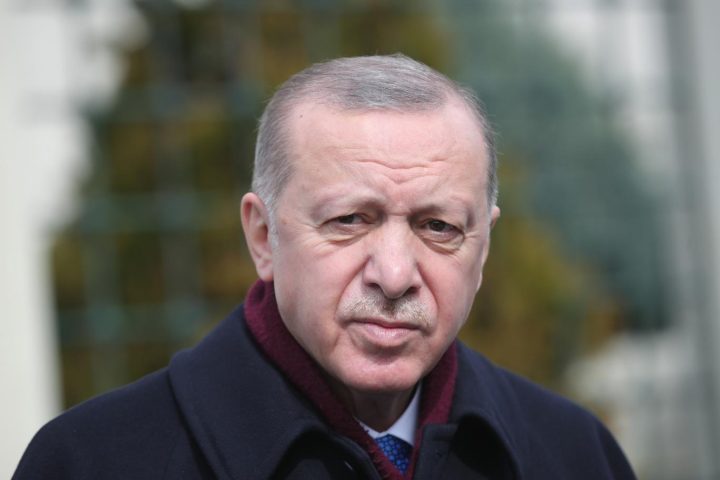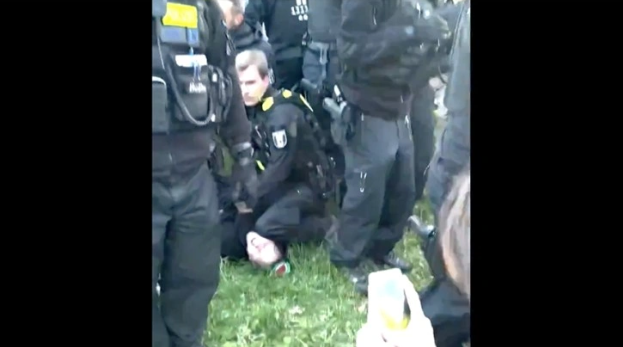Germany’s new foreign policy route will be felt all over the world
Angela Merkel is officially leaving her post next week after 16 years in power. In her farewell speech at the Ministry of Defense, where a “military farewell ceremony” was held by the soldiers, she gave a speech stating that she felt “gratitude and humility”.

In the remarkable speech of the experienced politician, the emphasis on democracy seemed to point to the problems that Germany would face in the future. Merkel said: “Our democracy thrives on the ability to critically examine and correct itself. They live in a constant balance of interests and respect for each other. It is fueled by solidarity and trust, as well as trust in facts and the fact that wherever scientific knowledge is denied and where conspiracy theories and agitation spread, contradictions must be voiced.”
- Pope accepts resignation of bishop of Paris, whose affair with a woman was exposed
- Israel urges world powers to immediately halt nuclear talks with Iran
While Olaf Scholz has been a longtime German government insider as vice-chancellor, his anticipated appointment next week as the country’s ninth post-war leader could herald a major shift.
As finance minister and Angela Merkel’s number two, Scholz’s policy space has largely been confined to economic issues. He supported efforts to impose a global minimum tax of 15 percent on large corporations and led efforts to mitigate the financial impact of the pandemic. Although it was criticized for the collapse of payment processing company Wirecard last year.
But now the best job awaits him, thanks to last week’s groundbreaking deal. This will see the centre-left Social Democrats lead Germany’s next government in a three-way coalition with the Greens and the pro-business liberal Free Democratic Party. The influence of the liberals will be particularly felt in the finance and transport ministries, heralding a changing landscape at home after Merkel’s team remained in power for more than a decade.
However, the impact of the new administration will also be felt in the international arena. After all, the German economy is the largest in the eurozone, and the country is also the continent’s most populous. Also, the nation’s influence within the EU could increase significantly following England’s departure from the Brussels-based club, allowing it to assert power on the global stage, including as the G7 presidency in 2022.
The Greens’ co-leader, Annalena Baerbock, will lead this agenda for change, along with Scholz, as future foreign minister. When the Greens were last in power in Germany from 1998 to 2005, they also held the Ministry of Foreign Affairs. Along with the outspoken Joschka Fischer’s strong opposition to the Iraq War, they also retained the State Department, which split the West on this major international issue.
The change in Baerbock’s administration will be felt not just across the EU – but also in the UK, where it will likely promote a stronger federalist agenda than the Merkel team. He and Scholz expressed deep concern over the post-Brexit issue of the UK’s continued adherence to the Northern Ireland protocol.
The change in Baerbock’s administration will be felt not only across the EU, but also in the UK, where it will promote a stronger federalist agenda from the Merkel team. He and Scholz expressed deep concern over the post-Brexit issue of the UK’s continued adherence to the Northern Ireland protocol.
But perhaps the key change in Germany’s foreign policy on the horizon will be towards China and Russia. Baerbock, for example, has argued for a much tougher line against Moscow, including in the context of the $11 billion Nord Stream 2 gas pipeline backed by Merkel.
The pipeline will double the capacity of the existing submarine gas pipeline from Russia to Europe. Merkel has pushed hard for this to happen to improve Germany’s energy security as she will shut down her nuclear power plants next year in the wake of the Fukushima disaster and phase out the use of heavily polluting coal by 2038. However, Baerbock considered it a “treacherous plan”, even though some saw Nord Stream 2 as a purely economic project.
Rhetorically, Baerbock’s position on this issue is closer to that of the US administration than Merkel’s. President Joe Biden’s team is very concerned about Nord Stream 2, despite the recent agreement with Berlin on this issue. U.S. Secretary of State Antony Blinken had said over the summer that “the pipeline is a bad idea, bad for Europe, bad for the United States, ultimately contradicting the EU’s own security goals… Ukraine, Poland, and a host of close partners and allies.” had made statements.
There is also a potentially sharp divergence on China, including human rights, compared to the Merkel era. This is because Baerbock and the Greens support a more “human rights-centered” approach to Beijing.
Over the past fifteen years, China has seen Merkel as a stabilizing ally, helping to counter the growing call of US and European politicians to leave Beijing. E.g; He has pushed hard for the ratification of an EU investment deal with China signed last December and has opposed the idea that democracies should unite to isolate Beijing diplomatically.
Merkel’s “change through trade” strategy towards China has had few supporters in Germany. Under President Xi Jinping, China’s economy has been under tight state control and its foreign policy has become more assertive.
These examples underscore the approaching crossroads of German foreign policy. As the new administration takes power, Berlin’s changing priorities will be felt around the world.




